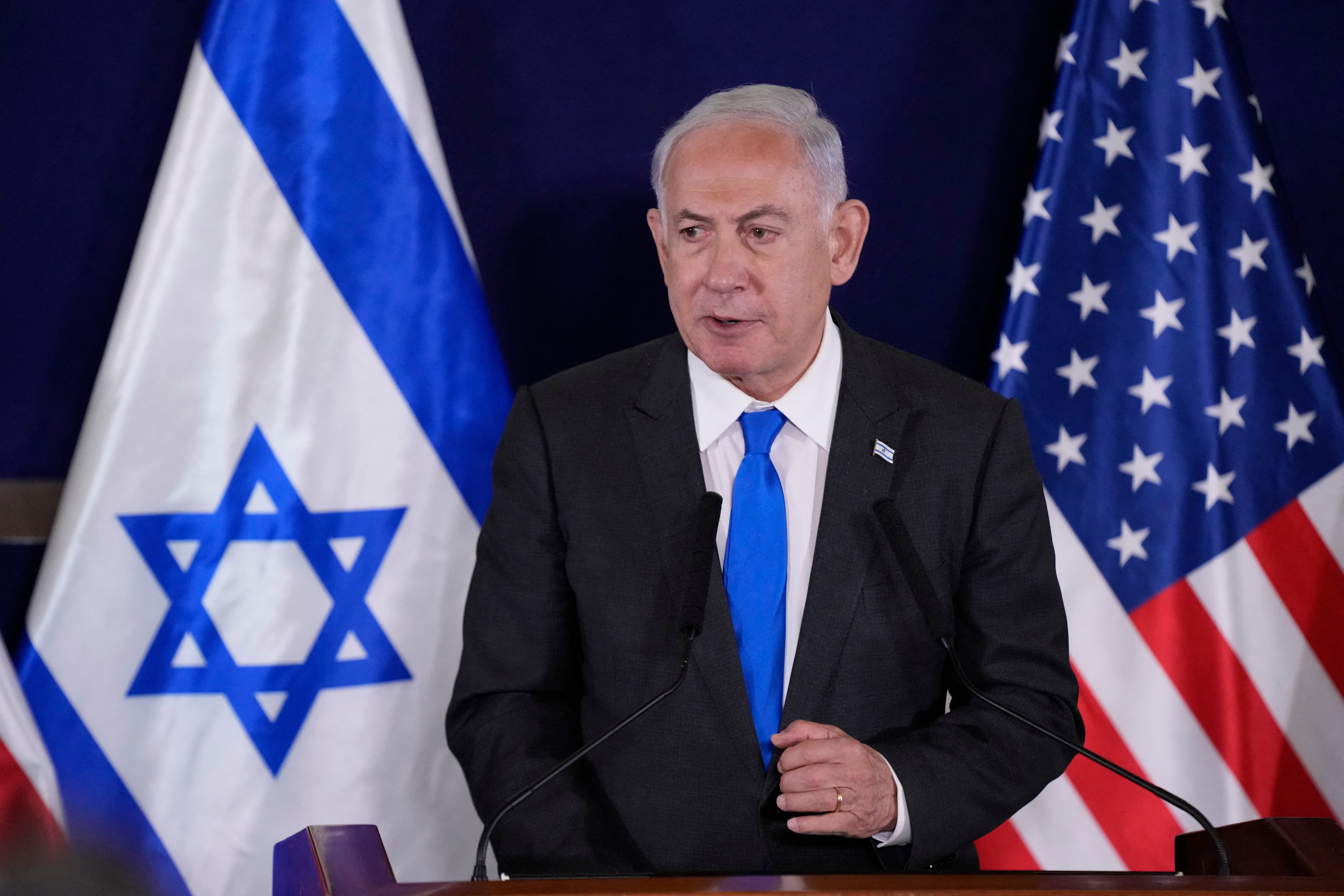There is still time for the West to change Israel’s mind on a ceasefire – but it must act quickly
Editorial: Israel has inflicted huge casualties and damage on Gaza but it is losing this war in the wider sense and rendering itself less secure

According to the United Nations Children’s Fund – a body worthy of trust and respect, and well acquainted with conditions on the ground – “Rafah is Gaza’s last hope”.
In that case, the Israeli government’s continued apparent determination to launch an armoured ground assault on Rafah, coupled with the most recent failure by the UN Security Council to agree to call for a ceasefire, removes the last vestige of hope for the nearly 2 million displaced persons – many of them children – sheltering in flimsy tents around the city in southern Gaza.
If the record of the last five months or so since the atrocities of 7 October is a reliable guide to what will happen next, what remains of Rafah will be pulverised, many thousands more innocent civilians will be killed, maimed and orphaned, the incipient famine will intensify across the territory – and what is already a humanitarian disaster will grow still more hopeless.
The proceedings at the United Nations are especially depressing. Motivated by little more than geopolitical spite, Russia and China exercised their vetoes on the Security Council in relation to an American-penned resolution calling for an “immediate ceasefire”.
In diplomacy, even more than in most areas of life, language matters – and the latest US stance marks a subtle but highly significant step in its policy towards the conflict. America wants a ceasefire to be implemented by Israel, and it wants it now. This is, of course, an approach that China and Russia have previously supported, sometimes with France, but now that it is the Americans who are putting it forward, they find cause to oppose it. It is, as the US ambassador to the UN stated in sorrow, a “petty” act.
It is perfectly fair to point out that it was America, acting as a close ally and friend of Israel, that previously vetoed similar resolutions from other members of the Security Council and opposed them in the UN General Assembly – but that is no help or comfort to those in Gaza waiting to die from shells, from bullets, from their wounds or from starvation.
The “Great Powers”, to use an old-fashioned phrase, are behaving like metaphorical children, while real children face the most terrible fear. The Middle East has seen many merciless conflicts and acts of terror since the end of the Second World War, not least the terror perpetuated by Hamas on 7 October – but what has occurred in Gaza is surely one of the cruellest episodes.
Rightly, America under Joe Biden is not giving up. Though incensed by Benjamin Netanyahu’s obduracy, the administration is continuing to talk to all sides, and is making increasingly ominous noises about putting real pressure on Israel to shelve its plans for a conventional attack.
Israel, while deserving of our sympathies for the murderous rampage enacted by Hamas five months ago and the subsequent hostage situation, has squandered so much goodwill among its staunchest and dearest allies and friends in recent weeks, as a result of the way in which it has conducted the war, that it has become, as US secretary of state Antony Blinken regretfully points out, isolated – a dangerous situation.
Whatever games Russia and China might play at the UN, Israel cannot rely on them to protect its interests. The time has come for the West to bring arms supplies and other assistance into the equation, and to make sure that Mr Netanyahu cannot simply act as he wishes and expect unconditional support. Nor would he be wise to wait for Donald Trump to win the presidential election and somehow come to his assistance; continuing this war will only make him even less popular in Israel, and more certain to lose the elections when they come around.
In retaliation for Hamas’s egregious attack, Israel has inflicted huge casualties and damage on Gaza – and it has denuded Hamas’s operations and eliminated some of the group’s senior terrorists. But Israel in the wider sense is losing this war, and rendering itself less secure.
Even the most cynically optimistic Hamas operative could not have hoped that Israel would respond to the murderous events of 7 October in such a way as to end up being charged with genocide at the International Court of Justice, and for the president of the United States to be barely on speaking terms with the prime minister of Israel, the special relationship almost ruptured.
With Ramadan still taking place, and Israel seemingly hesitant to act before it is over, there is still time for the West to make Mr Netanyahu change his mind. Peace, of whatever quality, cannot come quickly enough.
Join our commenting forum
Join thought-provoking conversations, follow other Independent readers and see their replies
Comments
Bookmark popover
Removed from bookmarks